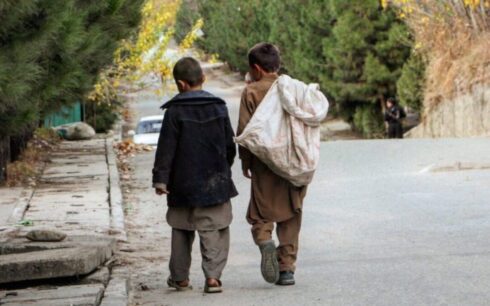The United Nations Human Rights Council on Wednesday adopted a new resolution on Afghanistan, which renews the mandate of the Special Rapporteur for Afghanistan for another year.
At the 54th regular session of the Human Rights Council China & Pakistan opted out of the consensus.
Delivering the draft resolution on the Situation in Afghanistan, on behalf of the European Union, the representative of Spain said “human rights in Afghanistan are in a state of collapse”.
She highlighted that Afghanistan is the only country in the world where women and girls are denied access to secondary and higher education and they have been “erased from all spheres of public life”.
She noted that women and girls who don’t comply with the Taliban’s “misogynistic” policies face arbitrary arrest, harassment and physical violence.
The resolution “has been drafted to address” the humanitarian crisis in Afghanistan “and to call upon the Taliban to reverse its policies and practices that abuse human rights of people in Afghanistan, bringing them in line with Afghanistan’s human rights obligations,” she said.
The resolution means the mandate of the Special Rapporteur will be extended, “providing him with additional support”. It will also mandate him to build on the June joint report focusing on “what is an institutionalized system of discrimination, segregation, disrespect of human dignity and exclusion of women and girls.”
She said this resolution will mandate a “stocktaking of accountability options and processes for human rights violations and abuses in Afghanistan.”
Asif Durrani, Pakistan’s Special Representative on Afghanistan objected to the resolution. However, he highlighted Pakistan’s long standing partnership with the UNHCR and its historical support spanning over four decades of Pakistan hosting millions of refugees from Afghanistan but said Islamabad remained concerned about the threat of terrorism “emanating from Afghanistan”.
He said the resolution took a “very narrow view of the situation” and failed to address civil, political, economic, social and cultural rights “considering all rights are mutually reinforcing an interconnected nature”. He went on to say the resolution “falls short of maintaining a balance and avoids discussing the underlying causes of dire humanitarian and socio-economic situations – and how to address them.”
He said the people of Afghanistan have, for “nearly half a century” braved political turmoil, violence, under-development, natural disasters, and the “disengagement approach” of the international community but that Pakistan “disassociates [itself] from consensus” on this resolution.
The Taliban however feel Pakistan is starting to exert economic and political pressure on them. Addressing an event at the Qosh Tepa Canal project on Wednesday, the Taliban’s deputy foreign minister Sher Mohammad Abbas Stanikzai said Pakistan was pressuring them by deporting refugees from Afghanistan.





